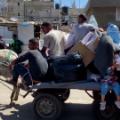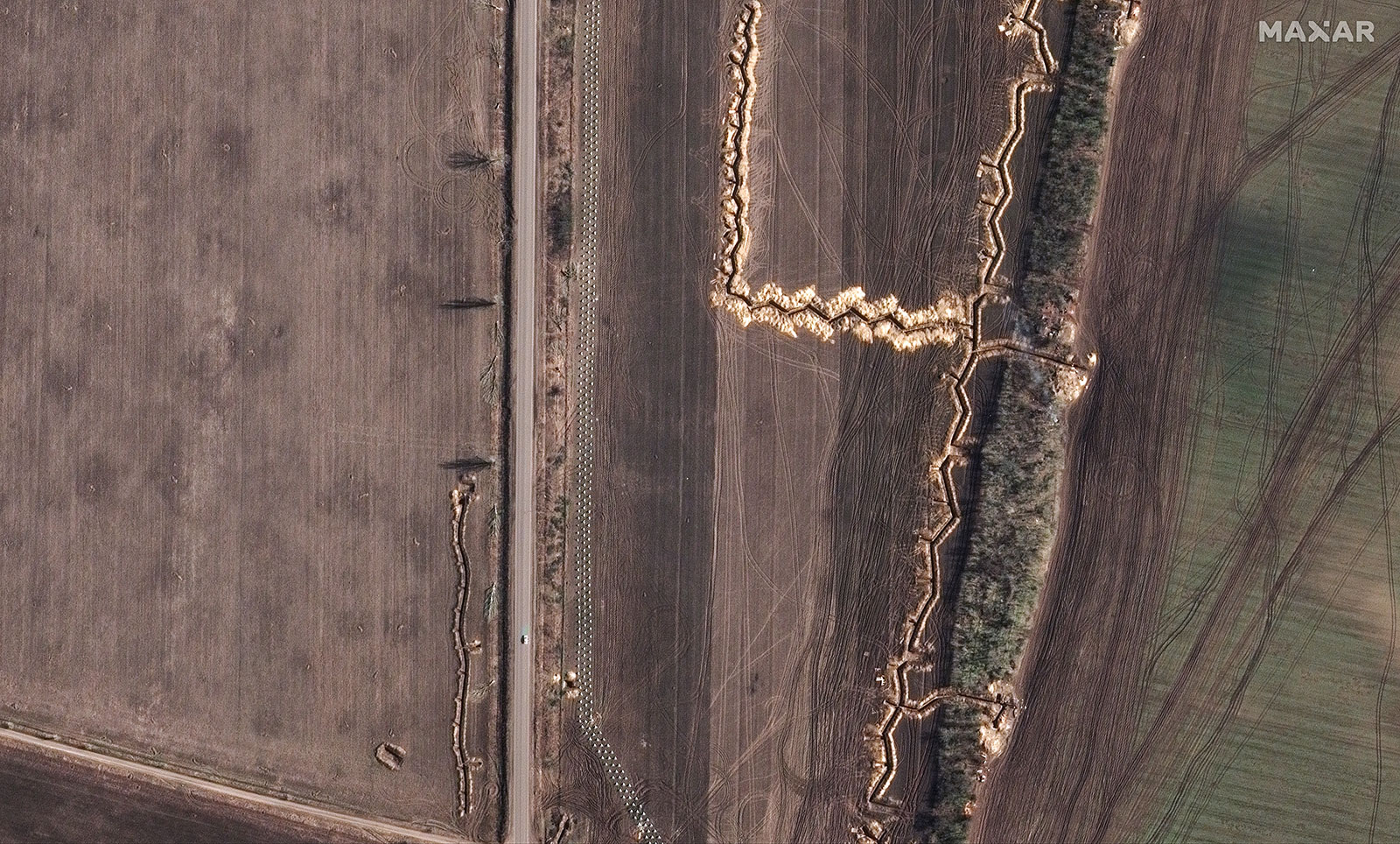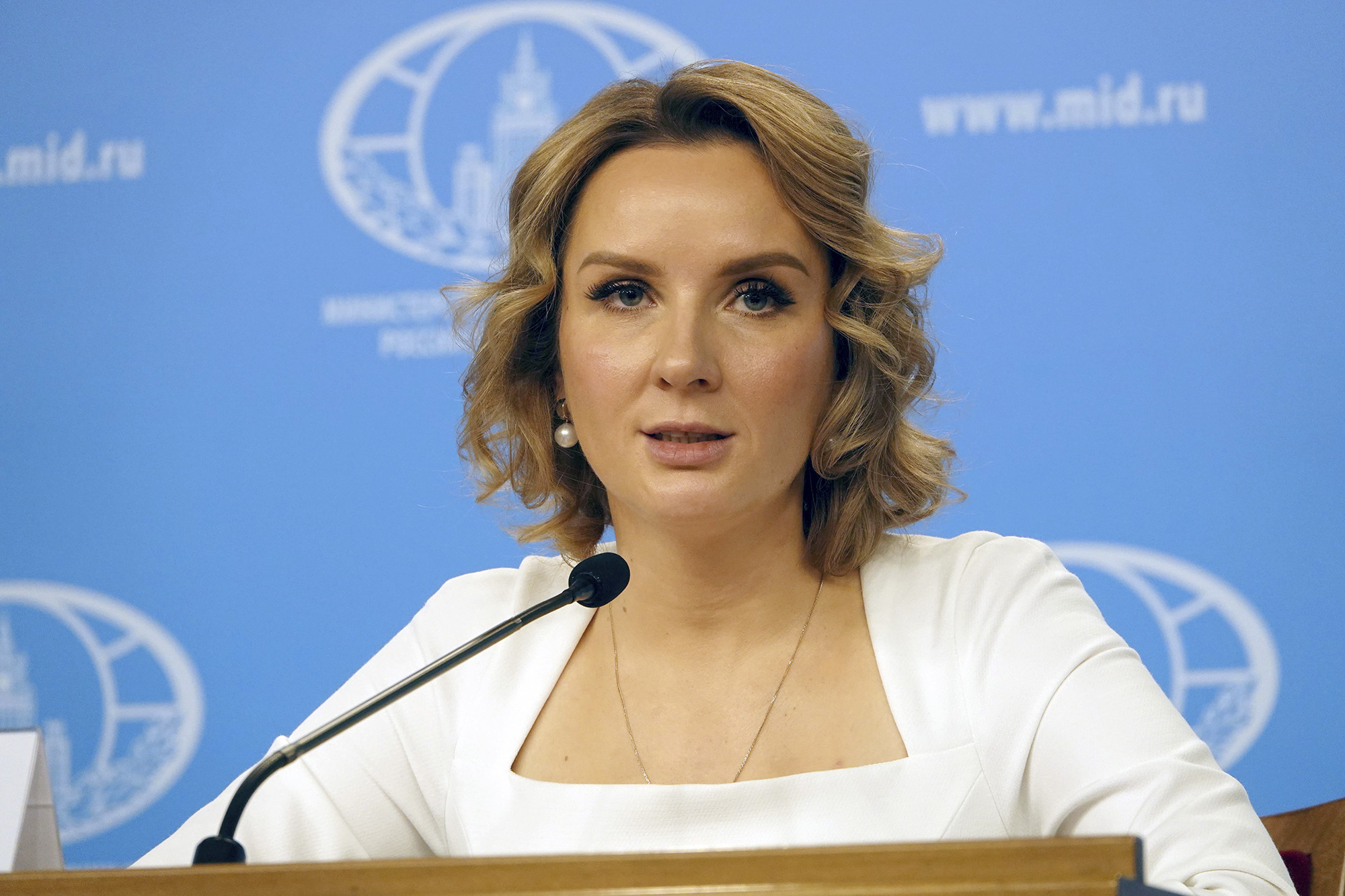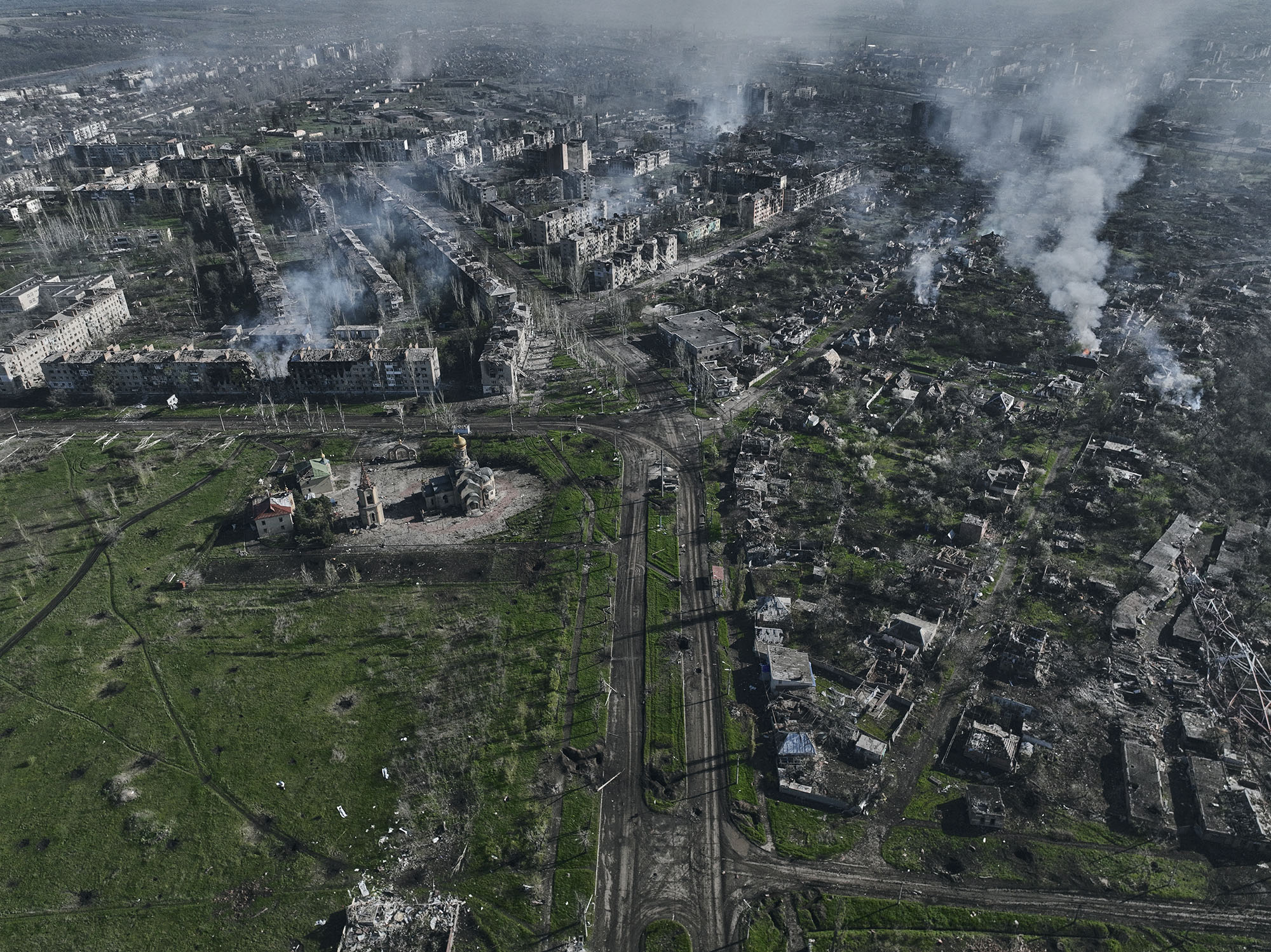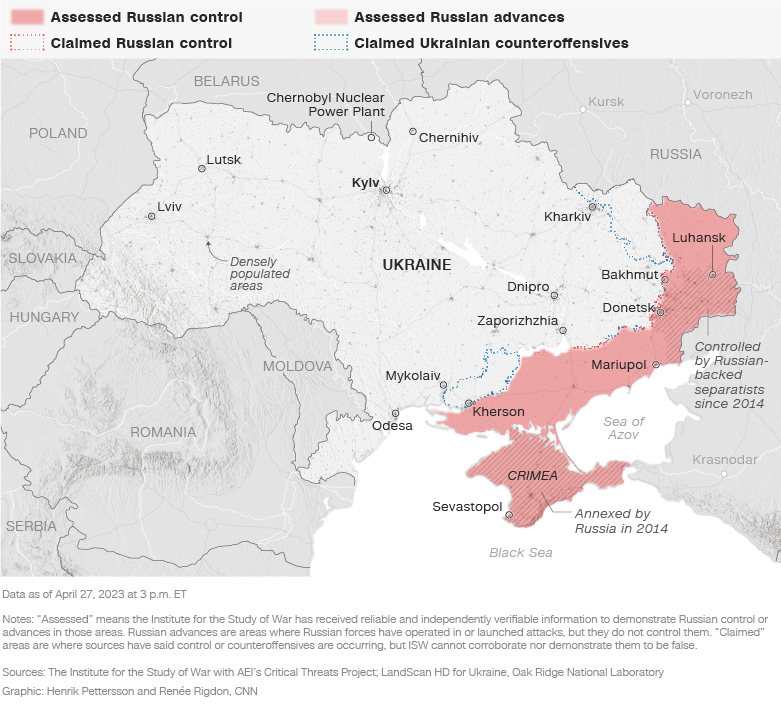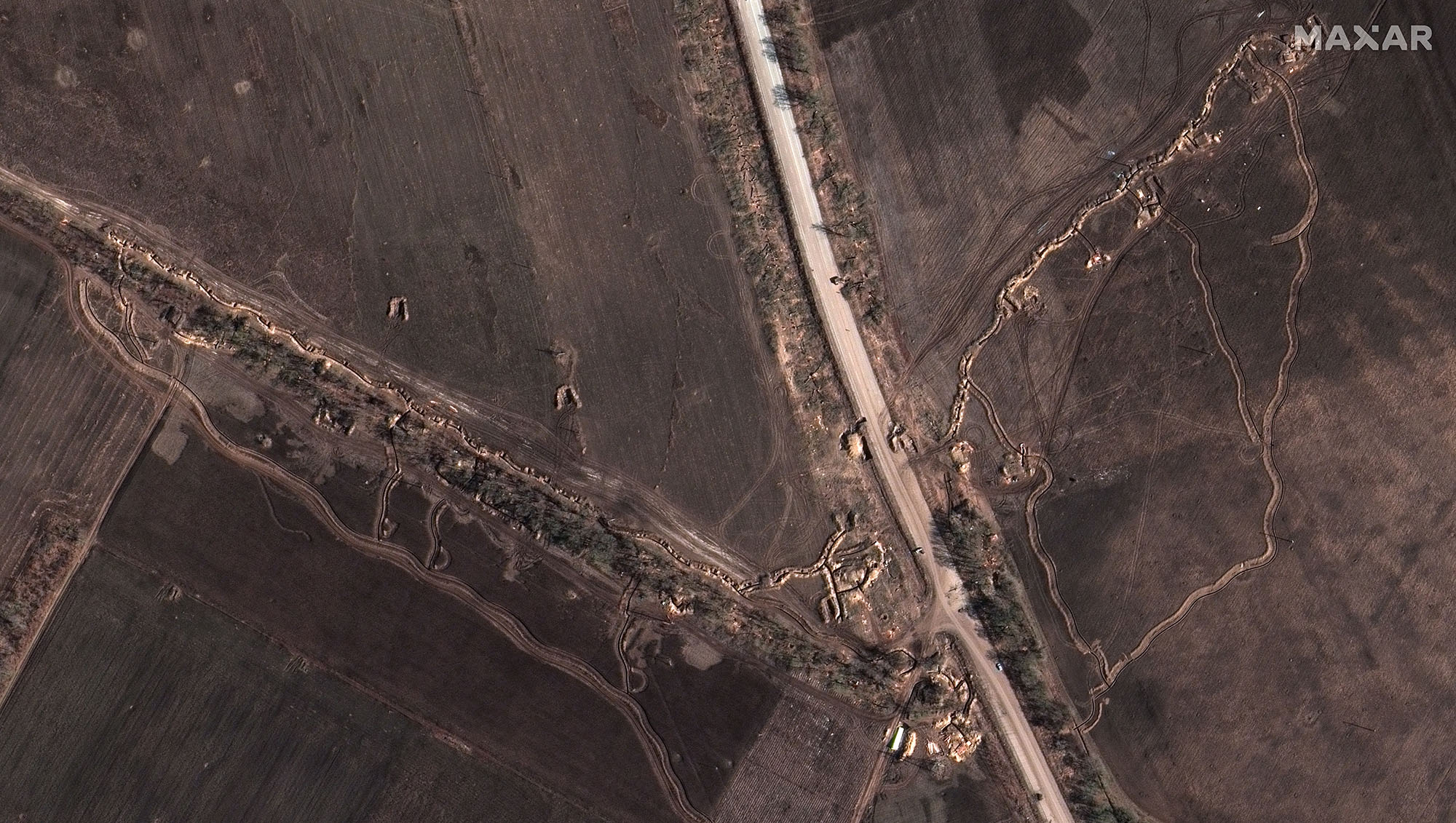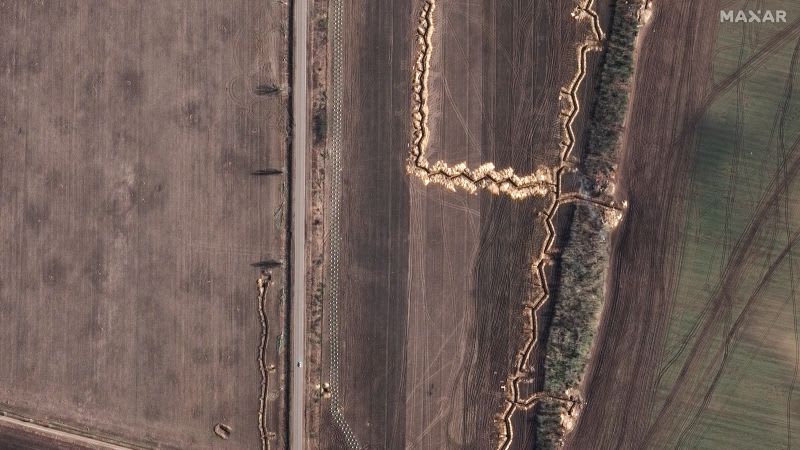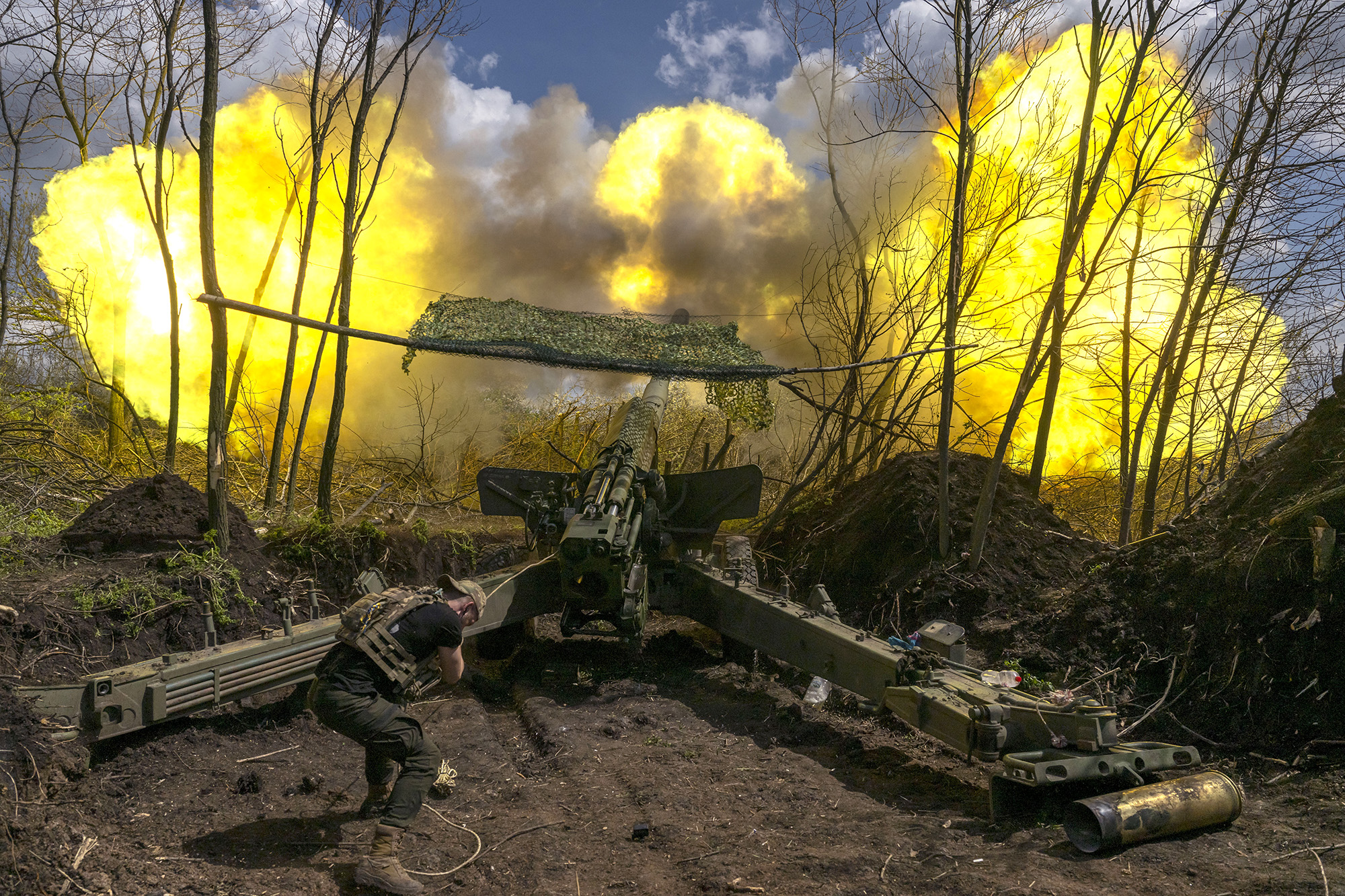
Ukraine’s counteroffensive appears imminent.
The country's front lines are abuzz with vehicle movement and artillery strikes, with regular explosions hitting vital Russian targets in occupied areas. President Volodymyr Zelensky has assured a counteroffensive “will happen," while demurring on any exact start date.
It may have already started; it may be weeks away. We don’t know – but Ukrainians, whom CNN spoke to in Kyiv, are pinning their hopes on this much-anticipated counteroffensive.
Tetiana Kolle-Kolesnikova, 35, left her town Volnovakha in the Donetsk region in the first days of Russia's full-scale invasion. Now she lives and works in Kyiv as a manicurist.
“I expect that our army will win in any case and take back all the occupied territories. And our family will finally be able to return home and see their homeland. We miss home very much," she told CNN.
Lawyer and Kyiv resident, Yurii Holovach, is also hoping for a positive outcome from the counteroffensive, but he also doesn't want the Ukrainian forces to feel rushed.
"They need to be trained and prepared. Even if it takes more time to get prepared — it's better, because then we will get more weapons. We need long-range weapons for the counteroffensive to go successfully," he said.
Tetiana Kravets, 26, an administrator in a notary firm in Kyiv, hopes that the counteroffensive is successful so the country could return to its pre-war conditions.
Contrary to their expectations, 56-year-old Ruslan Stryk living in Kyiv thinks there may not be a counteroffensive at all. Recounting his observations from the early days of April 2022 in Mariupol — before he evacuated with his wife — he said, a successful counteroffensive would need military aircraft.
"We don’t have planes! I remember in Mariupol, the sky was theirs [Russians’]. So without the military aircraft, there can be no counteroffensive. Or maybe the long-range weapons can do the trick, to be able to destroy their logistics in the rear. But without it, it’s very dangerous," he said.
"I want to [go] back home. But we need combat aircraft and long-range artillery. Otherwise, there will be big personnel losses,” he added.
